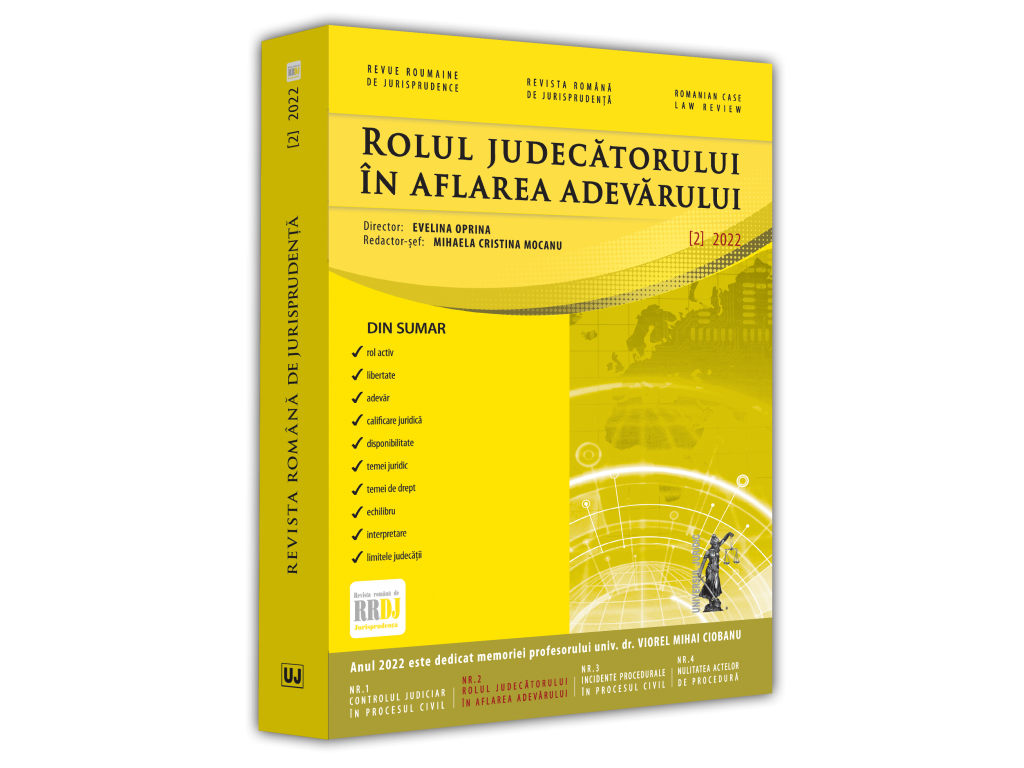Active role of the judge in the administration of the evidence of the case. The power conferred on it to assess the evidence, including by reclassifying some of it from one category to another
JURISPRUDENȚĂ COMENTATĂ ȘI ADNOTATĂ
Abstract
The judge's active role in the civil process manifests itself on several levels. One of these is the power to order of its own motion the taking of evidence it deems necessary and to assess both the evidence and that proposed by the parties in the light of its own system of legal values, which must meet two requirements: on the one hand, the breadth and depth of legal knowledge and reasoning required and, on the other hand, their constant adaptation to the specific case before the court. The extension of the power of appraisal of the evidence given is the ability of the judge to reclassify some of the evidence provided for in Article 250 of the Civil Procedure Code from one category of evidence to another. Concrete examples in this regard are provided by the texts of the Code of Civil Procedure itself, namely Article 295 of the Civil Procedure Code concerning the refusal of the party to produce a document or Article 358 concerning the refusal of the party to appear at a previously granted interrogation, both of which have been converted into the possibility left to the discretion of the judge to consider them either as a full confession or as the beginning of written evidence, which must be supplemented by other means of proof. Other identical assumptions in terms of legal reasoning are left to the judge as a subcomponent of his active role in finding the truth in a concrete case.








